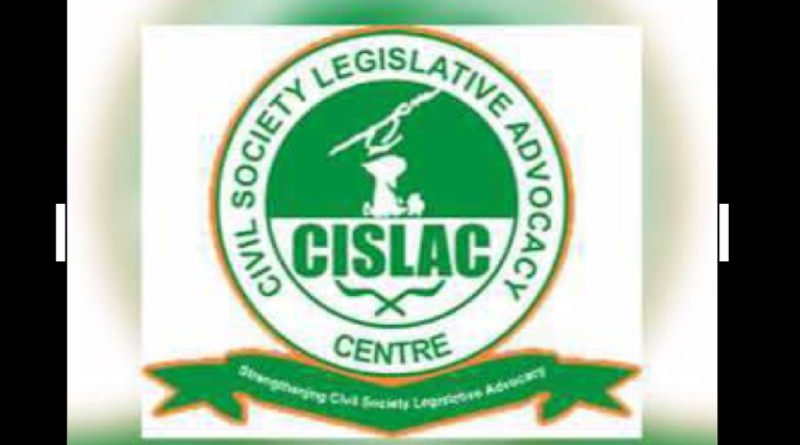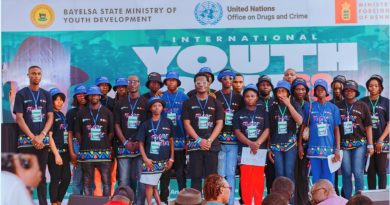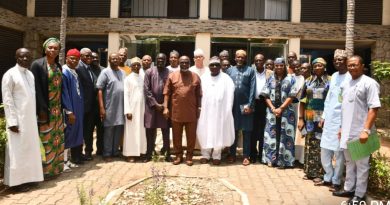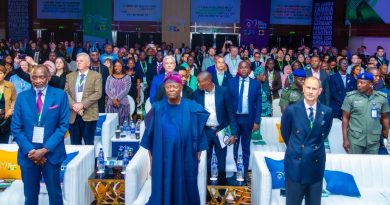CISLAC Calls for Renewed Action Against Corruption on International Anti-Corruption Day
Maryam Aminu
On International Anti-Corruption Day 2024, the Civil Society Legislative Advocacy Centre (CISLAC) has renewed its call for collective action to tackle corruption, highlighting its destructive impact on Nigeria’s security, economy, and basic services.
In a statement released to mark the occasion, CISLAC Executive Director, Auwal Ibrahim Musa Rafsanjani commended Nigeria’s anti-corruption agencies for their dedication to combating corruption despite facing significant challenges, including political interference, limited resources, and threats to their personal safety.
Rafsanjani emphasized the need for nationwide support to empower these agencies to effectively fulfill their mandate.
CISLAC revealed how corruption continues to undermine Nigeria’s security architecture.
The diversion of billions of naira allocated for counterterrorism has left troops underequipped, while insurgent groups such as the Lakarawas gain ground.
He expressed that the alarming cases of misappropriation, including the diversion of military funds and the sale of equipment meant for national defense, have further eroded public trust.
A recent report by Transparency International and CISLAC uncovered $8.9 million in diverted military funds, while over 4.3 million internally displaced persons (IDPs) remain in squalid camps due to prolonged insecurity.
“This cycle of corruption not only endangers national stability but also deepens poverty and weakens governance,” CISLAC stated.
CISLAC Executive Director urged the Nigerian government to allocate at least 15% of the national budget to healthcare, in line with the Abuja Declaration, to improve the doctor-to-patient ratio, currently at 1:6,000 far above the WHO standard of 1:600.
Rafsanjani emphasized the urgent need to develop healthcare infrastructure to cater to vulnerable populations, particularly IDPs.
Nigeria’s over 4.3 million IDPs face inadequate access to food, healthcare, and sanitation. CISLAC called for a transparent mechanism to be established for the disbursement of humanitarian aid to ensure resources reach those in need.
The organization highlighted the detrimental effects of corruption on access to essential services. With healthcare spending at just 5% of the national budget, Nigeria’s healthcare system is woefully underfunded. Millions lack access to clean water, and over 20 million children remain out of school, the highest figure globally.
“The mismanagement of funds meant for healthcare, water, and education not only widens the inequality gap but perpetuates poverty,” CISLAC noted, citing examples such as the abandonment of Kano’s Hasiya Bayero Pediatric Hospital and the failure to provide potable water for 70 million Nigerians
CISLAC stressed the importance of enforcing the Public Procurement Act to ensure transparency and fairness in government contracting.
The organization called for legislative frameworks to regulate constituency projects, ensuring allocated funds are used for their intended purposes and benefit local communities. Transparent and competitive procurement processes, free from political interference, were deemed essential to maintaining a clear audit trail of public funds.
The statement also shed light on economic corruption, including the theft of 400,000 barrels of oil daily and tax evasion by multinational companies.
CISLAC revealed that Nigeria loses over $1.5 billion monthly to oil theft and $4 billion annually due to tax loopholes exploited by oil firms.
The organization warned that corruption in the banking sector facilitates money laundering and terrorism financing. It advocated for stricter Know Your Customer (KYC) protocols and enhanced monitoring of BVN activities to detect and prevent fraudulent financial transactions.
CISLAC further expressed concern about corruption within the judiciary, citing instances of political interference and contradictory rulings that have undermined public trust. The erosion of civic space was also highlighted, with activists and whistleblowers facing intimidation and violence for exposing corrupt practices.
The organization urged the Nigerian government to roll back laws that inhibit free speech and to protect journalists, activists, and citizens who expose corruption. CISLAC called for public awareness campaigns to educate the population on their rights and available corruption reporting mechanisms. Anti-corruption legislation must also be strengthened to address gaps in asset declarations, public procurement transparency, and anti-money laundering frameworks.
CISLAC proposed comprehensive reforms to address corruption, including strengthening institutional frameworks, enforcing transparency, and promoting civic engagement. “Corruption remains Nigeria’s greatest obstacle to socio-economic progress. It is time for all Nigerians to unite against this menace and demand accountability from public officials,” the statement concluded.
By implementing these reforms, Rafsanjani believes Nigeria can build a transparent, accountable, and equitable system that lays the foundation for sustainable economic growth and social equity.




